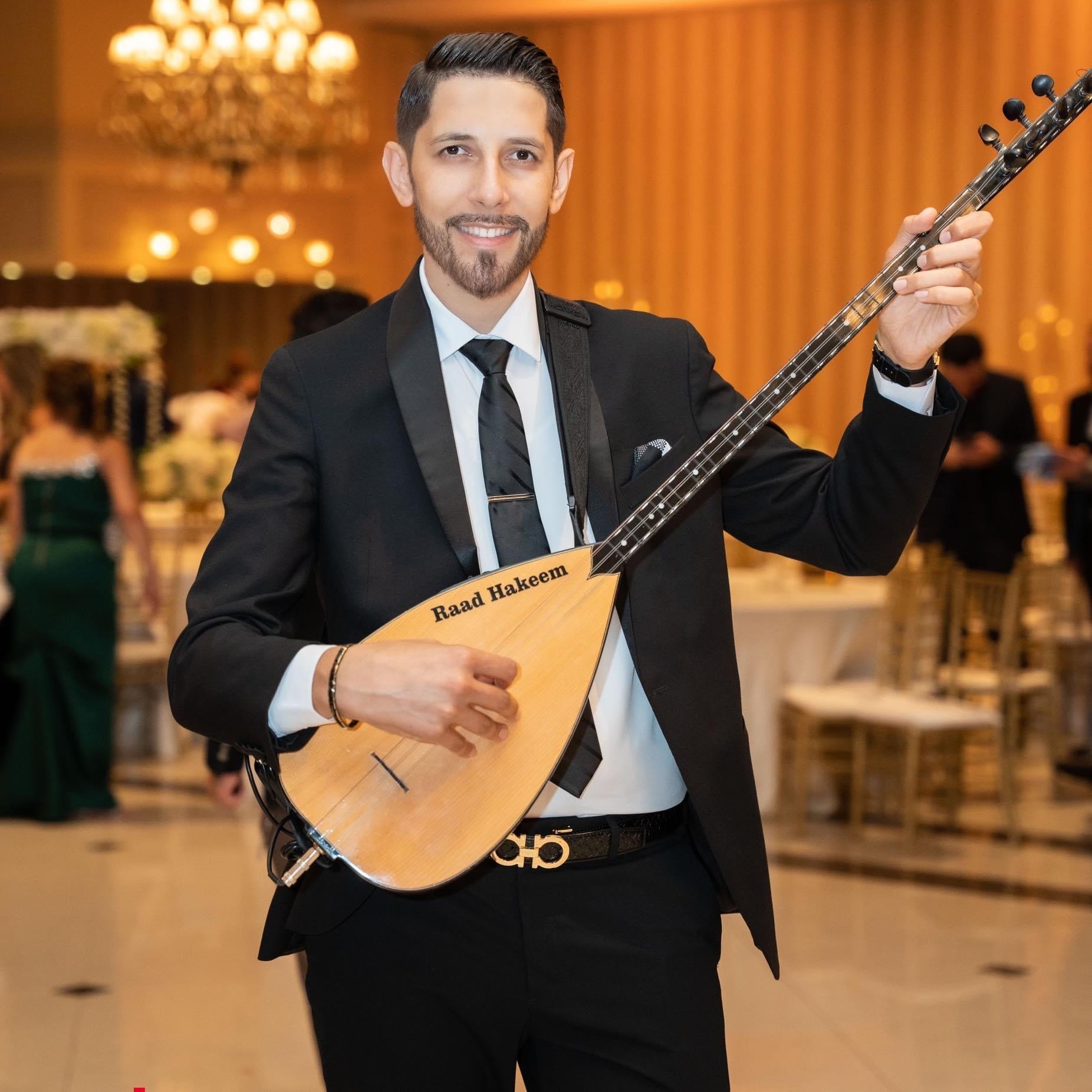Raad Hakeem: Music Man
Raad Hakeem
By Weam Namou
Born in Alqosh, Iraq, Raad Hakeem, 32, has been playing the tamboura since the age of eleven. Known in Turkish as saz, the tamboura is a musical stringed instrument with a long neck and round body. It belongs to the lute family and is known for its rich, resonant sound. It is commonly used in Indian classical music, although it has found its way into various genres of world music and fusion styles due to its unique tone and versatile nature.
Hakeem was taught how to play this instrument by his paternal uncle. “Whenever he left to serve in the army, I would use his instruments,” remembers Hakeem. “I practiced a lot during school breaks. The hardest thing was trying to find time to play and study too.”
His father also dabbled with various musical instruments, so music was in the family genes. But only in Hakeem’s case did this aptitude turn from hobby into a full-time career.
Early on, Hakeem’s talents gained recognition from the neighborhood. His family had a store in town where he’d sit and play the tamboura. People stopped to listen and enjoy his music.
“Our house was on the way to the monastery,” he said, “so people who passed through would come over and insist that I play something.” Over time, they asked him, “Why don’t you get on TV and radio stations so the world can hear what you play?”
At age sixteen, he began doing interviews for different channels. Locals invited him to play at gatherings. Little by little, he started performing with bands, and nowadays, he mostly does solo shows.
Because of the dire situation there, Hakeem left Iraq in 2011. He lived in Lebanon where every day after work, he continued to play with the musical instruments he brought from Iraq. “During that time, I learned a lot of famous Arabic songs by the legendary Abdel Halim Hafez and Fairuz,” recalls Hakeem.
These practices led him to create his own rhythms that combined Arabic, Iraqi, Turkish, Chaldean, Assyrian, Lebanese, and Egyptian music. “I took a chance with this kind of music and people liked it,” he said. “That inclusivity is what makes my style unique. It reaches various cultures and ethnicities who are at the same event. I haven’t seen anyone else do what I do in this way.”
Hakeem arrived in the United States in August 2013. He was in his early twenties and realized that people here didn’t know the quality of his music. “It took a while for them to understand and have confidence in my work,” he said. “Since 2021, I’ve been doing this full-time.”
Hakeem visited Iraq in 2022 for six days, going to Duhok, Erbil, and Alqosh. “I can’t describe the feeling of going back to your hometown and seeing the people that you love,” he said. “It was great, and the people were great.”
He performed at a couple of parties, for no charge. He did so out of love for the community and because many could not afford to pay. They lived under difficult circumstances, though they try not to show it. “These are my people and I wanted to make them happy,” he said.
He noticed big changes since he left, such as social media. “Nowadays everyone has a phone and can watch online the entertainers and musicians that they like,” he said.
Hakeem credits his musical success to his ambitious attitude, persistence, and the support of people. He listened to his audience and created tunes that resonated with them. They therefore appreciated his work and booked him regularly until he became so in demand, he saw that he could make playing the tamboura a full-time career.
In the future, Hakeem would like to reach composers in the Arab World and work with them. This would broaden his audience and give him a global presence.
He’s happy to help other artists grow in their fields, but only if they’re ambitious. “If they don’t have ambition, then they’re wasting my time,” said Hakeem. “You must have the will to pursue your dreams,” he went on. “When you love your work, you will always succeed. By loving it, you are giving it value, and in return people will give it value. You must hold on to the work and take it seriously.”
Raad Hakeem will be one of the artists featured in the West Bloomfield “Meet Your Neighbors” event on Thursday, September 28. A multicultural experience, the event runs from 4-7 PM at the Connect Senior Center located at 33230 West 14 Mile Road. All ages are welcome, and light refreshments will be provided. The Chaldean News will have a booth at the event, participating as part of the Great Michigan Stories Project.
Raad will also be at the Chaldean Cultural Center’s Founders Gala on Friday, October 20 from 6-11 PM at Shenandoah Country Club. Tickets and sponsorship information are available on the Center’s website at chaldeanculturalcenter.org/event/2023-founders-gala.
Contact Raad Hakeem at (586) 277-9691 or by email at raadhakeem@gmail.com.


